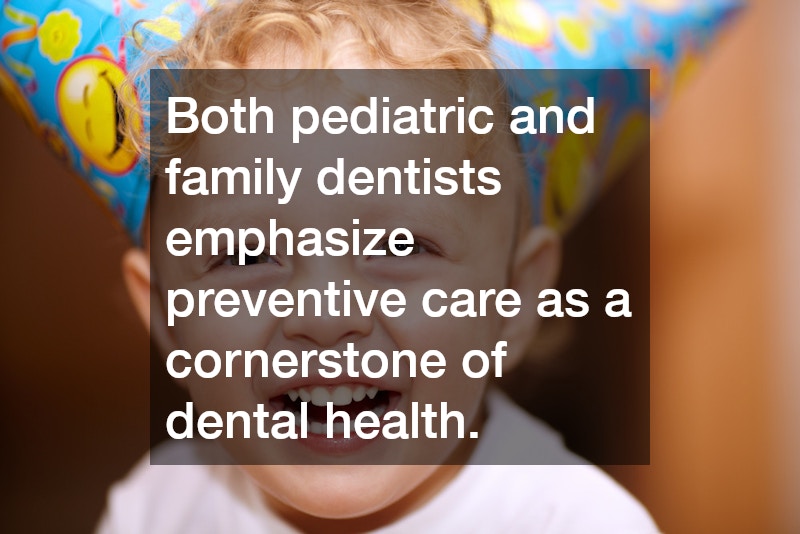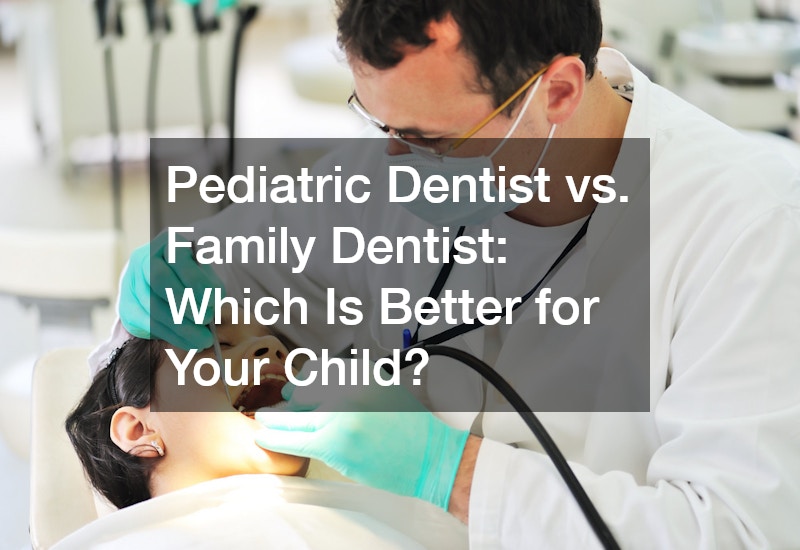Pediatric Dentist vs. Family Dentist: Which Is Better for Your Child?
When it comes to your child’s dental health, deciding between a pediatric dentist and a family dentist can be challenging. While both types of dental professionals are qualified to care for your child’s teeth, they each have unique strengths that may make one more suitable than the other depending on your child’s needs.
In this blog post, we’ll explore the differences between pediatric dentists and family dentists, discuss the specific benefits of each, and help you determine which might be the better fit for your child.
Pediatric Dentists: Specialists in Children’s Dental Health
Pediatric dentists have specialized training that focuses specifically on the oral health of children from infancy through the teenage years. After completing dental school, pediatric dentists undergo additional training in areas such as child psychology, growth development, and special needs care. This expertise enables them to provide tailored treatments that align with the unique needs of growing children. Additionally, pediatric dentists are well-versed in managing the behavior of young patients, often employing techniques that make visits less intimidating and more fun. This specialized knowledge means that pediatric dentists are uniquely equipped to identify and address any dental issues that are prevalent among children, ensuring that young patients receive the specific care they need.
Family Dentists: Versatility and Continuity of Care
Family dentists offer comprehensive dental care to patients of all ages, from young children to the elderly. This versatility allows family dentists to treat every member of your household, providing convenience and continuity of care as your child grows. A family dentist can follow your child’s dental health journey from childhood through adulthood, maintaining a consistent record of care over many years. This long-term relationship can be beneficial for spotting hereditary dental conditions and fostering a strong rapport between the dentist and patient. For families seeking to streamline their dental visits, a family dentist can be an incredibly practical choice.
The Importance of Child-Friendly Dental Environments
Creating a welcoming and child-friendly environment is a key component of pediatric dental practices. Pediatric dental offices are often designed with bright colors, engaging décor, and entertaining distractions to make visits entertaining and enjoyable. These child-centered environments help reduce anxiety and fear associated with dental visits, encouraging children to view their dental appointments positively. Likewise, pediatric dentists are skilled at using language that is easy for children to understand, which empowers young patients by involving them in their care. While family dental offices are generally welcoming to patients of all ages, pediatric settings have an environment specifically tailored to make children feel at ease.
Preventive Care and Education
Both pediatric and family dentists emphasize preventive care as a cornerstone of dental health. However, pediatric dentists are particularly focused on educating children and their parents about proper oral hygiene practices from an early age. They often provide insights on topics such as dietary recommendations, fluoride treatments, and the importance of regular brushing and flossing, aiming to instill good habits that can last a lifetime. Pediatric dentists also conduct risk assessments for dental issues that may develop as children grow, offering early intervention strategies to prevent more serious problems. Family dentists also focus on education but may take a more generalized approach due to the broader scope of their patient demographic.
Special Needs and Complex Cases
For children with special needs or complex dental cases, a pediatric dentist may often be the more appropriate choice. Their specialized training includes skills for managing the unique challenges faced by children with medical, physical, or developmental conditions that impact oral health. Pediatric dentists are equipped with a wide range of adaptive techniques and equipment designed to accommodate various special needs, ensuring that dental care is both effective and compassionate. In this context, their office staff are usually trained to understand and address the specific considerations of special needs patients, making visits smoother and less stressful for both children and parents.
Conclusion: Making the Best Choice for Your Child
Ultimately, deciding between a pediatric dentist and a family dentist will depend on your child’s individual needs and your family’s preferences. While pediatric dentists offer specialized care and environments designed specifically for children, family dentists provide the convenience of treating the whole family in one practice. Consider factors such as the atmosphere of the dental office, the dentist’s approach to patient interaction, and any special requirements your child may have. By weighing these considerations, you can make an informed decision that supports your child’s dental health and sets the stage for a lifetime of positive dental experiences.


